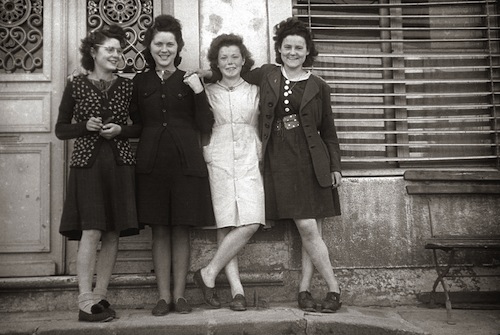It seems crazy to me that we are still talking about how to help girls around the world get an education. It's 2013 -- at this point, it's a no-brainer that everyone has a right to an education, and we have plenty of facts and figures to back up the idea that educating girls not only improves their lives, but it also improves life for everyone in their country by lowering malnutrition and HIV rates, and growing the economy. (You would think that educating girls for the sake of educating girls would be enough, but for those for whom it is not, rest assured that there's an economic gain. Bill Gates once told a gender-segregated audience in Saudi Arabia that their country could only meet its economic goals if it started utilizing the other half of the talent in the country. Guess which side of the audience enjoyed hearing that.)
But perhaps I'm the crazy one. We do, after all, live in a world where there are still child brides who are treated as legal property, and human trafficking runs rampant. (According to the UNDOC 2012 Global Report on Trafficking in Persons, women and girls make up 75 percent of all trafficking victims. Of course trafficking of any kind -- regardless of the gender of the victims -- is horrific.). Clearly we are not as evolved as we would like to believe. Am I expecting too much of us as a race?
Maybe the information age is actually working against us. We have access to so much information about atrocity and injustice that it is easy to become inured to the facts. Sure, we can find the answers to questions without leaving our desks, but this also means that we are overwhelmed by information constantly. Our hearts and minds have understandably constructed defense mechanisms to cope with this bombardment.
But really, that's no excuse. Education is a pretty basic right. If we can't make sure it's available to everyone, we're not doing so well.
So this is a call to action: what are you doing to make sure everyone gets a fair shot at being a productive member of society? Don't worry -- I'm not going to suggest you do things that I haven't done, like leave your job behind and go to one of the world's most impoverished nations to build a school with your bare hands. (I'm not even going to suggest you jump into the fray here at home and try to repair our own flailing education system.) What I'm about to suggest is something you've probably heard before, so consider it a gentle reminder (we can all use those from time to time): be a mentor. Because education isn't just about what happens in the classroom -- it's about what happens outside it as well. If you take the time to teach someone about something you love, chances are there will be a pretty great ripple effect.
Allow me to get personal for a moment. My grandfather -- a man of very few words -- had been a photographer in World War II. After the war, he and my grandmother ran a photo-developing shop in Miami, and I often hung around the store. It was my silent grandfather who taught me to appreciate photography as art during the hours we spent in the darkroom together. Not only did he teach me which of those unforgettably pungent chemicals to use when, and how to develop those long rolls of film and slice them on the cutting board, but he taught me art appreciation. Every once in a while, a beautiful photograph would turn up amidst the vacation photos and graduation shots, and my silent grandfather would no longer be quite so silent.

I didn't grow up to become a photographer -- I became an actor. But years after those afternoons in the dark room, I attended the Women in the World Summit, and was fiercely inspired by what I'd learned about how educating girls can change the world. As I left the conference, wondering what I could possibly bring to the cause, I realized I had two assets: my connections to fantastically talented people in the entertainment industry, and a love of photography. And right then and there, my organization Shutter to Think was born.
My grandfather made an effort to teach his granddaughter something that was meaningful to him, and the knowledge and appreciation he instilled in me ultimately blossomed into a way to (hopefully) make a difference. So what am I saying? I suppose it's a version of "think globally, act locally." Simply said, being a mentor to one girl in one place can have an impact on others in far off lands. So even if you can't go build schools in developing countries, you can teach a child about something you love, and if you're lucky, they may use that knowledge in ways you never imagined.
Tracy Middendorf is an actor and a director, and the founder of Shutter to Think, an organization dedicated to educating girls around the world through the sale of donated photographs. Visit Shuttertothink.org for more.
Tracy Middendorf, founder of Shutter to Think, has generously donated a photograph taken by Laurel Holloman from L Word as a prize this week to the RaiseForWomen Challenge. Donate $25 to RaiseForWomen today through 6/3 pm ET and you could win the photograph!